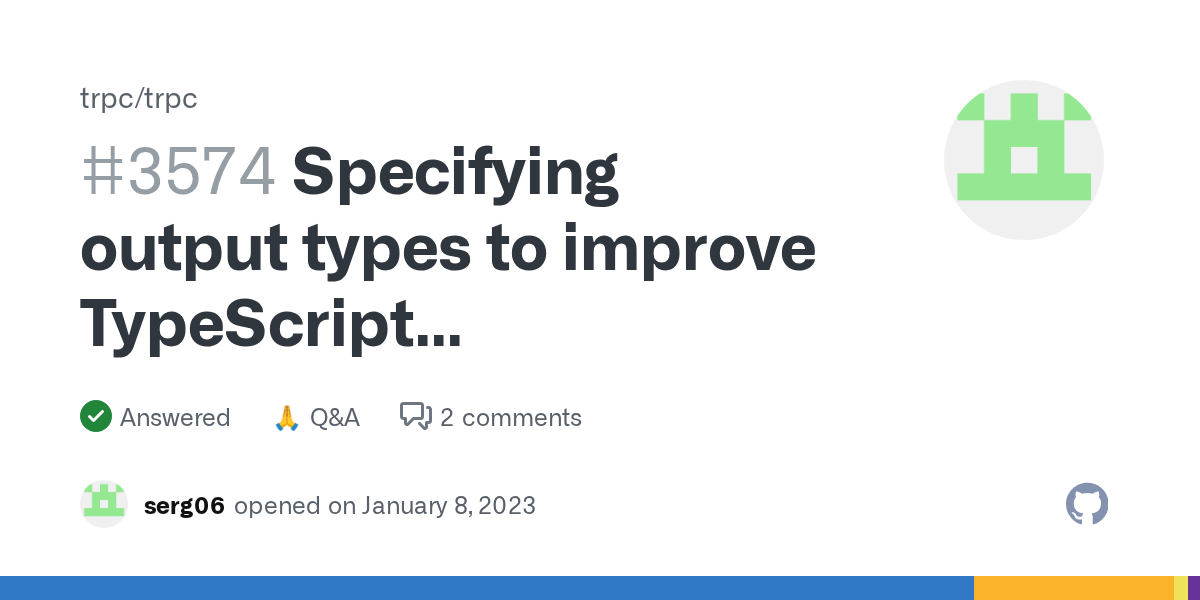How to improve typescript performance?
The inferred type of this node exceeds the maximum length the compiler will serialize. An explicit type annotation is needed.ts(7056)


tRPC has long been my favorite tool to use. However, as time has passed, my application has grown slightly bigger, and now I cannot see how it will be possible for me to continue using it... I need a way for tRPC to be scalable, to allow for the creation of hundreds of endpoints and not have to constantly worry about my editor performance. But... it's getting increasingly hard to do this. So much so that I am considering moving off it to something more scalable.
I heard that there are ways to break up trpc so that it will keep being performant for typescript. but how? I saw that KATT had a comment here: https://github.com/trpc/trpc/discussions/3574 saying that it is possible to break up trpc into multiple packages. But it's not clear to me how? I am using turborepo, so I believe this would be possible.


tRPC has long been my favorite tool to use. However, as time has passed, my application has grown slightly bigger, and now I cannot see how it will be possible for me to continue using it... I need a way for tRPC to be scalable, to allow for the creation of hundreds of endpoints and not have to constantly worry about my editor performance. But... it's getting increasingly hard to do this. So much so that I am considering moving off it to something more scalable.
I heard that there are ways to break up trpc so that it will keep being performant for typescript. but how? I saw that KATT had a comment here: https://github.com/trpc/trpc/discussions/3574 saying that it is possible to break up trpc into multiple packages. But it's not clear to me how? I am using turborepo, so I believe this would be possible.

GitHub
Hello! I'm using tRPC 10 with TypeScript 4.9.4. I have a monorepo with a client and a server. My editor's auto-complete is pretty slow; I'd like to speed it up by explicitly specifying ...
